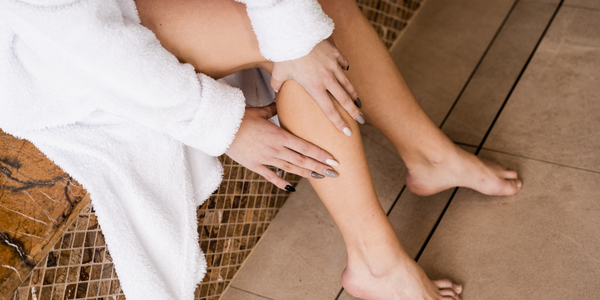Make the most of that extra hour of sleep!
Don’t let a lack of rest sabotage your workouts. Sleep deprivation not only affects your mind but also your physical body.
At one time or another, we’ve all experienced a sleepless night that left us irritable, off-kilter and exhausted. One night doesn’t do that much harm, but over time the long-term effects of sleep deprivation put many people at risk for mental, health, and physical problems.
Mental fog or memory issues are common among people who don’t get enough rest, but there are other consequences that can have negative effects on your fitness goals.
Studies show that people who do not get the recommended 7-8 hours per night are more likely to gain weight, experience high blood pressure and suffer from a weakened immune system—despite working out and being healthy in other areas such as eating right.
Not getting enough rest stops your body’s ability to defend itself from things like the cold or the flu. If you are sick, it takes longer to get better. Over time, the effects can lead to bigger issues like diabetes.
According to the National Sleep Foundation, experts have known for years that not getting enough rest is directly linked to your body hormone levels and the ability to regulate and metabolize glucose. People who do not get enough are at a higher risk for weight gain and type 2 diabetes.
Sleep deprivation increases the levels of insulin after you eat. Higher levels of insulin increase fat storage and your risk for diabetes.
Your body needs more than a healthy diet and exercise.
When you sleep your body is hard at work repairing and resetting itself and when you don’t get enough sleep it can’t do that. Bottom line—without rest your body systems don’t work as they should. Multiple studies show that getting less than 6-8 hours of sleep increases the risk of early death by 12 percent.
Here are a few tips provided by the National Sleep Foundation:
- Stick to a sleep schedule all week long
- Practice a relaxing bedtime ritual.
- Exercise every day
- Set your bedroom temperature, sounds, and light levels to promote sleep.
- Choose a comfortable mattress and pillows.
- Alcohol and caffeine are sleep stealers
- Turn off electronics before bed and store them in a different room
SMART Recovery
3 Foam Rolling Moves for a better night’s sleep
Solid foam rollers contour to the body and provide mild compression to the area. Foam rollers release tightness and discomfort caused by sitting, poor posture sustaining the demands of a long day.
Try these moves in the last 15 minutes before bed to relieve stress-related trigger points which will help you catch your zzz’s better every night.
- SPINE ROLL RELEASE
- MID/UPPER BACK RELEASE
- LOWER BACK RELEASE







